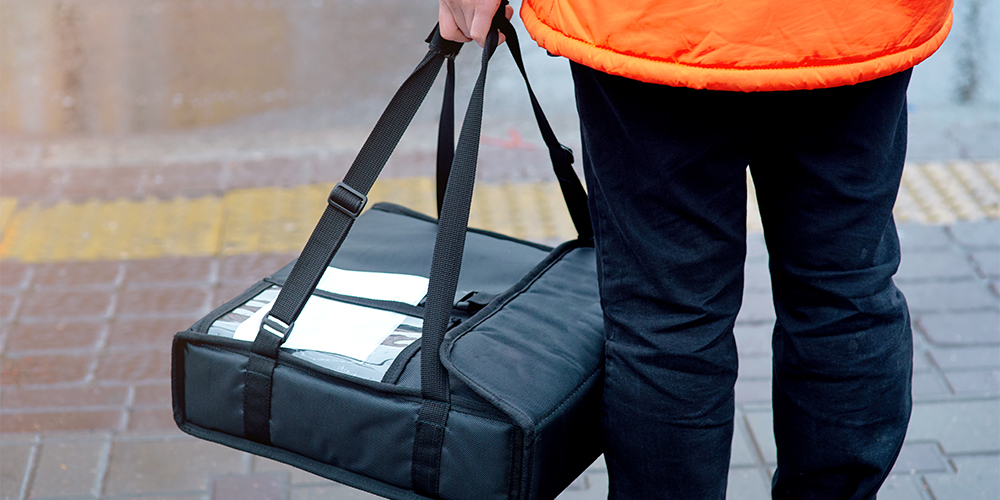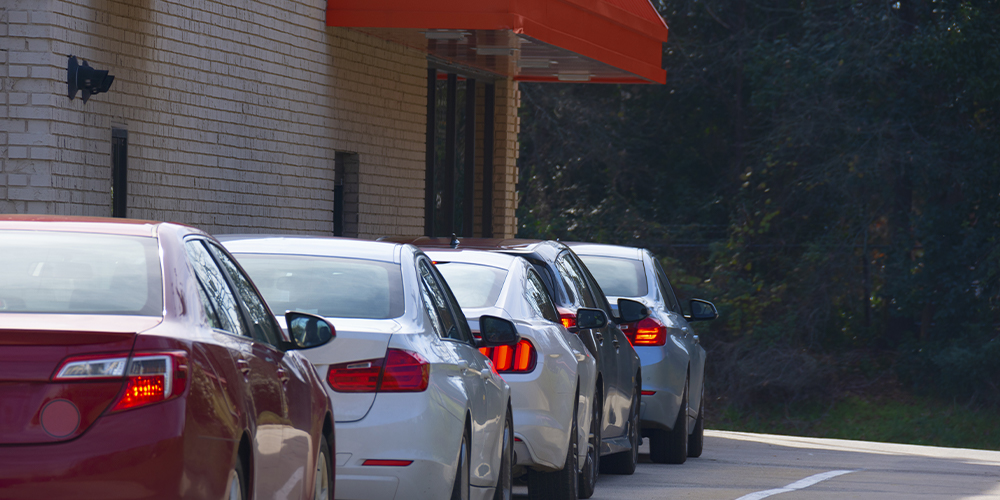The coronavirus pandemic has hit the restaurant sector particularly hard. From fast-casual to fine-dining, restaurants have had to quickly pivot from dine-in to carry-out, catering and delivery, even if it meant starting from scratch. For those businesses who were already predominantly offering these services, they have to manage the challenges of increased competition, reduced consumer traffic and staffing concerns.
Now, as states across the country begin to lift stay-at-home orders, the sector faces a new set of challenges: how to reopen. For restaurants, reopening means significant modifications to business plans, especially in the short term, as people remain wary of dining out and large social gatherings. So, what does the future of restaurants look like?

Managing Capacity
There are several issues related to capacity that need to be addressed in planning and forecasting revenues for the near term. Historically, capacity limits on public places have been the purview of fire departments, as they provided guidance on how many people could occupy a given space and still allow for evacuation in an orderly and timely fashion. However, given the social distancing orders in place and what we know about how the pandemic spread, will capacity be limited by health organizations as well?
Regardless of health code or guidance, businesses will need to provide social distancing options for clients. That may mean reducing capacity by physically eliminating seating throughout the facility, or adjusting configurations to provide additional queue space for bar or light item service.
For many restaurants and bars, multiple-person groups drive a large portion of business and are integral to the ambiance, atmosphere and appeal of the concept. But large groups of diners present a unique crowd control challenge. How best to manage large group spacing and interaction with staff is a concern that will need to be addressed as part of the process to restart the business.
As restaurants think about reducing capacity to increase safety for patrons, and plan for operating under current and future guidelines, it’s not out of the realm of possibility that patrons may not be willing or even allowed to sit around in the bar areas for a drink before they are seated or while they wait for an order. For many restaurants, these types of add-on sales can significantly boost revenue and will need to be accounted for in other ways. Although, in more adventuresome jurisdictions, drinks and appetizers could be sold to customers in their cars instead of asking them to wait inside or at the bar.
Sanitation Concerns
Operationally, restaurants have to answer a lot of questions moving forward. For instance, should menus be left on the table for the guests to review as they sit down? What about condiment baskets? Can tables be set prior to a guest arriving?
Food service and delivery isn’t the only area that restaurants will need to be mindful of in terms of sanitation. Restaurants should plan to modify or update the technology used for payment and access, which may require some innovation. Companies need to look at how their mobile app might be updated to allow for payment at a location to reduce physical contact between guest and staff. There should also be an expanded use of online or app-based reservations. Additionally, restaurants will need to rely on mobile alerts when a table is ready, rather than using a restaurant-issued pager.


Is Delivery Viable?
For a great many restaurants, delivery has been a viable short-term solution. However, it is not likely a cure-all for the industry and it is unlikely that long term delivery works for those wishing to differentiate themselves on the strength of their employees, customer relations, atmosphere and attention to detail. The delivery process itself inserts a level of uncertainty and variability that the restaurant cannot fully manage. Time will tell, but delivery has offered an opportunity for creative operators to serve their communities, which should at least provide some goodwill with customers.
“Ghost kitchens,” or commissaries, are used by restaurants as a strategy to leverage physical space, control quality for catering and event-driven sales, and eliminate the need for street presences. In urban settings, when managed well, these types of off-site operations can provide meaningful output and offer consistency of product and service. However, for restaurants aiming to grow delivery operations, it’s difficult to convert their kitchen into a commissary. Another problem is that larger locations are often in areas of retail concentration or in business districts where rent is prohibitively high and access to reasonably-priced labor is limited.

Consumer Demographics and Behavioral Patterns
The demographic makeup of customers will greatly impact restaurants’ business short term. In the current environment, life has taken on different traffic patterns – literally and figuratively. People go to restaurants for a variety of reasons, including the chance to try something new, convenience and, of course, to socialize. The reasons consumers choose a concept should greatly impact a restaurant’s behavior when looking to forecast how to ramp up when reopening.
Consumers will be cautious in returning to old habits to differing degrees, and each demographic will respond to a restart differently, based on risk profile and other factors. Considering the reported rates of severe complications by age group, older guests are likely to delay heading out of their homes into public with any regularity. Families, however, may trade caution against the need for convenience, value, social events and entertainment. Young adults will likely return to normal even before the industry is ready for them to do so.
High-end, status-based concepts might rebound reasonably well. Typically, these types of places have limited seating already and are usually less impacted by recessionary trends overall. And, as destination locations, they do not rely on neighboring businesses to drive traffic.
Convenience and value concepts should rebound quite quickly. Once people are back to work, they will return to their usual routines. Depending where you live, expect your local Starbucks or Dunkin’ Donuts back up and running full speed soon. McDonald’s, Sonic, Burger King and others that rely on drive-thru, quick-service and have a large value component to their offerings should also restart quickly.
Vacation, tourism, event, and convention business-related locations should see the same type of contraction as with the 9/11 attacks and the 2008 financial crisis, as employers and associations eliminate events and families delay trips for either health or economic reasons. Unfortunately, that may mean an entire year of missed profits for seasonal destinations.
As professional leagues look into playing for TV audiences or severely limiting attendance at specific event sites, and conferences are cancelled or moved online, how will that impact revenues at locations tied to sporting, event or convention sites? The Consumer Electronics Show, for example, regularly draws crowds of 175,000 attendees and means millions of dollars for Las Vegas restaurants. Even with 2.9 million square feet of exhibition space, that’s probably not enough to keep “appropriate social distance.”

Location, Location, Location
Suburban and rural restaurants will likely have a smoother path to recovery than those in urban areas. Many suburban and rural drive-thru businesses are faring well, only down 4–6% year-over-year, while other regional locations may be suffering 20–25% declines in urban centers.
Restaurants in locations dependent upon large box or retail center traffic will likely remain significantly down through the holiday season. The current shutdown will undoubtedly precipitate further erosion of the ability of retail centers to drive traffic and business. For those consumers that formerly chose to go to the store and shop, a month or two of ordering online will likely accelerate the move away from bricks and mortar.
The federal government’s decision to not issue any broad ranging shelter in place edicts, but instead allow state and local governments to manage their populations, may prove problematic for companies with large footprints. How can a national chain support its locations with marketing, promotions and advertising if some states are locked down and others are open for business? How do you manage locations that might be on the border between states with different mandates? These are just two examples of questions that need to be answered. The inconsistency between states will be an operational maze for owners.
The Future
What does the pandemic mean for the rest of 2020 and the holiday season?
Not all locations are equal and not all may be able to successfully restart. Forecasting must be done on a location-by-location basis. Using a sales trend percentage across all locations might lead management down the path of reopening one too quickly, and/or overstaffing or understaffing another prematurely.
There is no one size fits all approach, but it is clear that owners across the restaurant sector will need to make difficult decisions, on a location-by-location basis. Adaptability and creativity, which has never been in short supply in the restaurant industry, will be the keys to survival.
